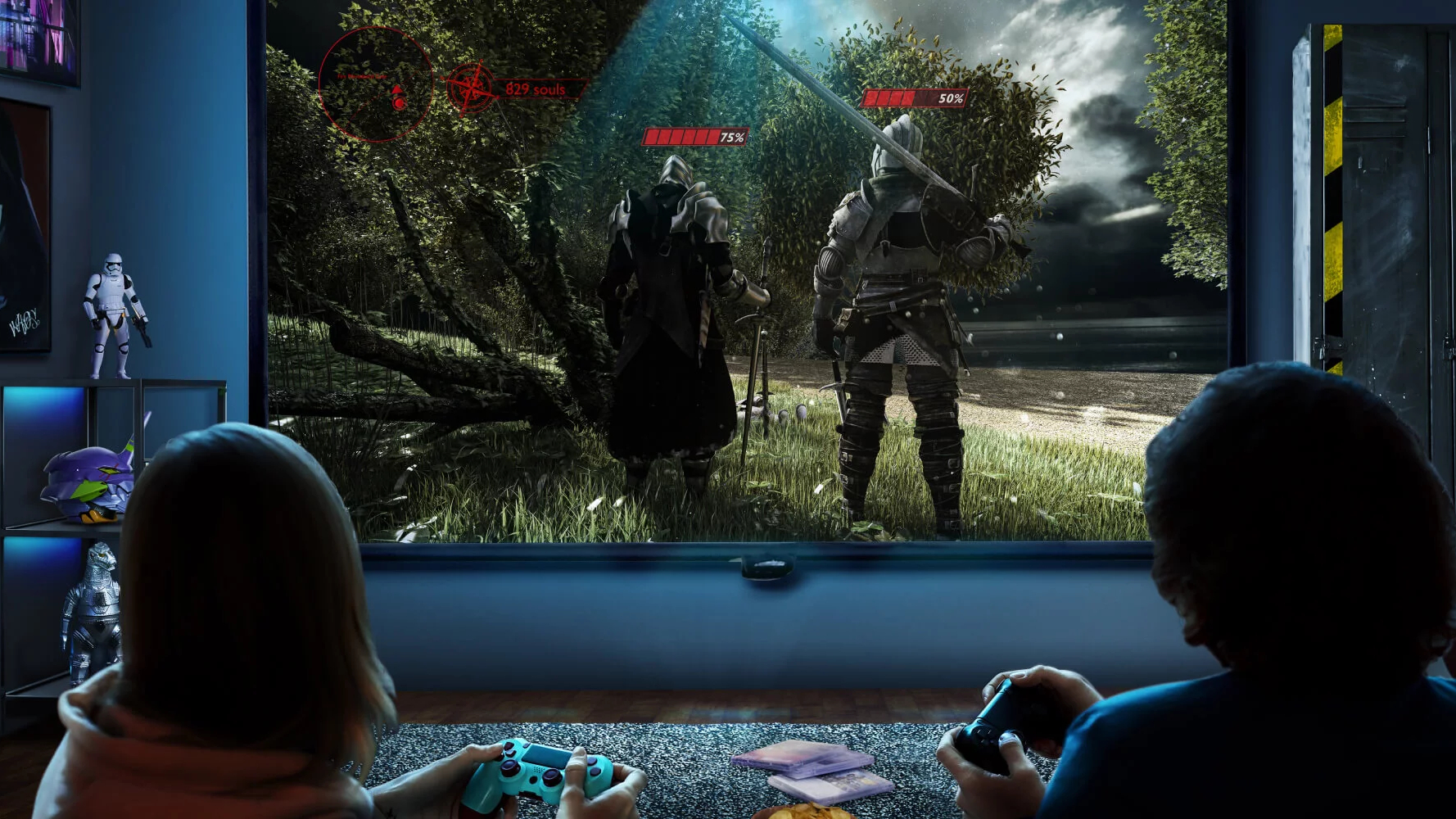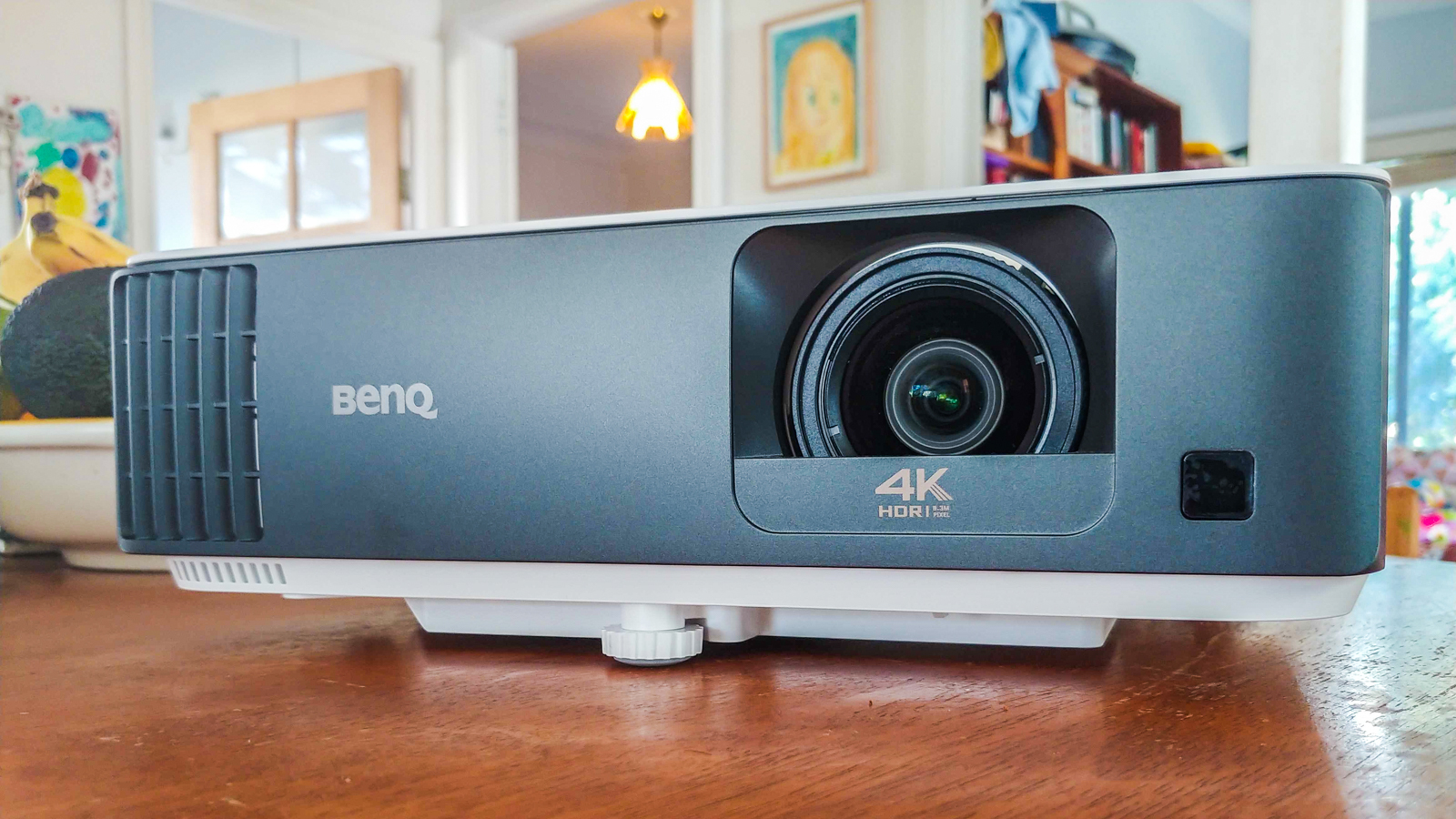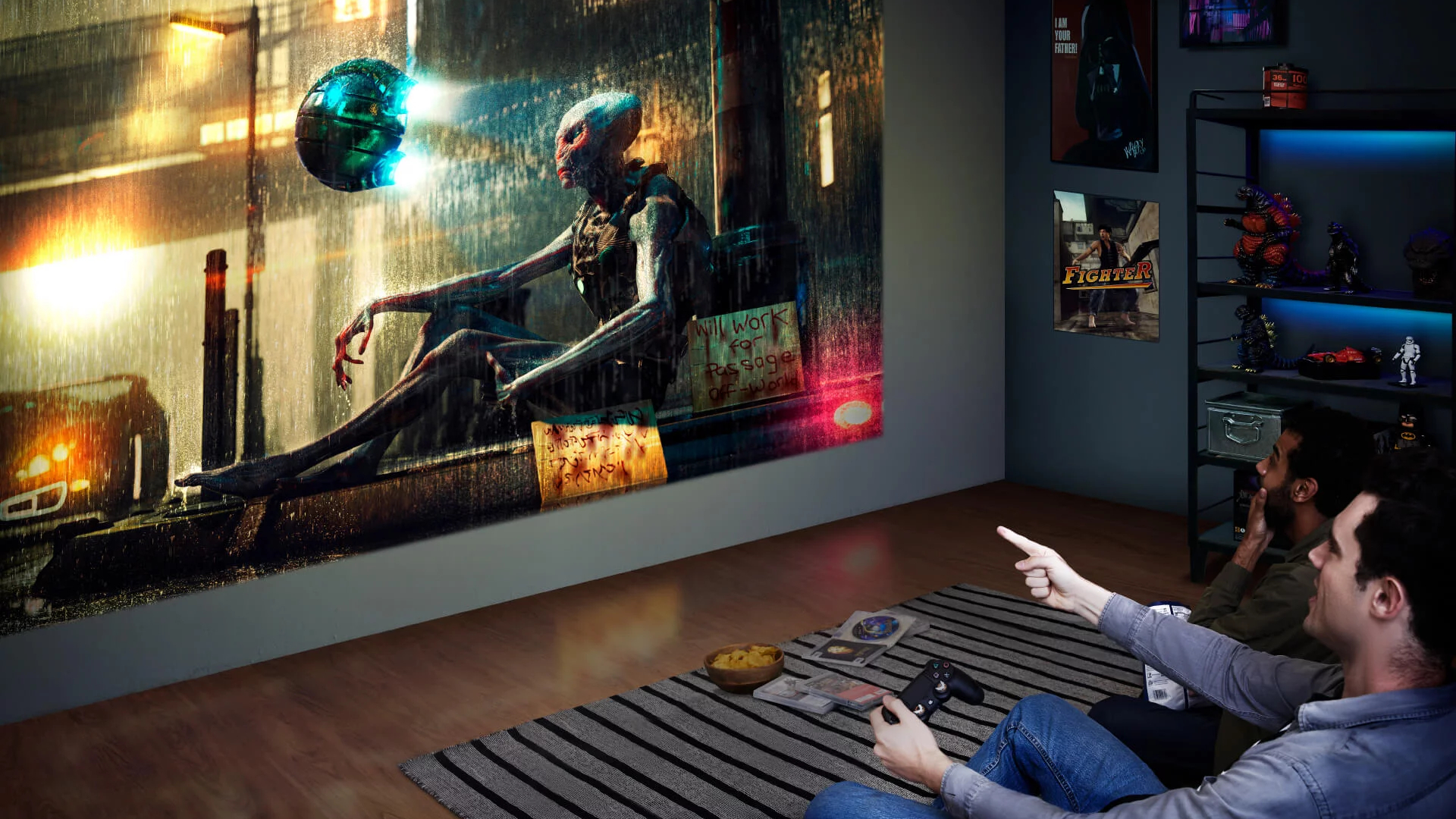I played PS5 on a 4K gaming projector and it blew me away
This week, I had the chance to take a 4K HDR gaming projector for a spin, and in order to put it through its paces I immediately hooked it up to my PS5 to see how it displayed some of the best looking games you can play this generation. And I came away thoroughly impressed.
To be more specific, the projector was the BenQ TK700STi. The company has been producing beamers of all budgets for years now, but the TK700STi marks its first attempt at a 4K HDR gaming-focused projector, and at $1,699 (around £1,249) the price is comparable to the 55-inch LG C1 OLED TV, which we think is among the best TVs for gaming you can buy.
And that’s what brings us onto this topic - why consider a 4K gaming projector when you can buy one of the best gaming TVs for roughly the same price? Before I sampled the BenQ TK700STi, it’s a question I would have - perhaps foolishly - weighed against the projector. Now, though, I can think of several reasons why a 4K gaming projector like the TK700STi is absolutely a worthwhile investment if you want a stunning gaming setup.
Let there be light

The thing that immediately surprised me with the BenQ TK700STi - aside from the blissfully simple initial setup - was just how well its picture displayed in a bright environment. Projectors, typically ones that dip below the $1,000 price point, often have a reputation of displaying a dimmer image in well-lit conditions.
That’s something that even some of the best 4K TVs can struggle with, depending on the amount of glare that can bounce off the display panel. OLED panels in particular aren’t quite as bright as LCD or QLED displays, either, so aren’t ideal if your room lets in a lot of natural sunlight.
Not so with the TK700STi. To my delight, the beamer was able to display games of various tones and lighting conditions - such as Demon’s Souls and Cyberpunk 2077 - with little to no issues. From the deepest blacks of the former’s oppressive Upper Latria to the scorching hot skies of Night City’s surrounding Badlands, the projector effortlessly displayed various environments and times of day as effectively as if they were shown on a HDR-capable TV screen.
That’s largely thanks to the TK700STi’s light source. At 3,000 lumens, it’s bright enough to capture every inch of the projected image even in brighter, naturally lit rooms. That’s even brighter than some of the best 4K projectors you can buy, such as the excellent Epson EH-TW9400’s 2,600 lumen output.
A versatile victory

In my time using the TK700STi, I’ve found that it’s a lot more versatile than a 4K TV, too. It’s more portable, for one, and with a little effort, can be moved from room to room. Its short-throw capabilities mean that you don’t need a massive room for the display to properly align, either. A distance of around 6.5 feet is all you need to display a massive 100-inch picture. Plus, you can move it closer or further away from your wall or ceiling to shrink or expand the display size based on your preferences.
And even when your display size hits the triple digits, the beamer still puts out a crisp 4K image. That’s crucial to consider, as most large TVs that approach that size usually cost thousands of dollars, especially when they’re brand new. If you are looking for a truly mammoth screen size without the equally enormous cost, then, a 4K gaming projector like the TK700STi could provide an easier path to get the display size of your dreams.
Keeping versatility in mind, 4K gaming projectors like the TK700STi are good for more than just that. Depending on your beamer of choice, you’re also able to download and watch a variety of the best streaming apps. And doing so with a 4K HDR capable projector means you could be getting a cinema-like experience in your own home - especially if you crank that display size up beyond 100 inches.
The perfect match?

It’s been nothing but positivity for 4K gaming projectors so far, then, but it’s important to note that my experience wasn’t entirely free of flaws. As much as I’d love to say a 4K, HDR-ready gaming projector is a total improvement over a 4K TV, that’s not always going to be the case. One area where the projector fell short, which could actually be quite detrimental to a gaming experience, is input lag.
If you’re unaware, input lag is the time - measured in milliseconds - between an action being sent from your controller to the display. The LG C1 is a fantastic example in this case, featuring a base input lag of 10ms. That means if you press a button on your controller, the action will play out on the display roughly 10 milliseconds later.
Most 4K gaming projectors can’t quite keep up with 4K TVs in this regard, though at 16ms, the BenQ TK700STi is among the best beamers for minimal input lag. In fact, that’s quite remarkable for a projector, but there will be edge cases where an input lag above 10ms can be somewhat detrimental to the experience.
As an example, I tested out the newly released The King of Fighters 15, and results could’ve been better. That’s because fighting games like The King of Fighters, Street Fighter and Mortal Kombat more often than not require precise inputs to execute special moves, such as swinging the analog stick in a quarter-circle motion before immediately hitting a button.
A relatively high input lag means that the game occasionally has trouble registering these inputs on screen, even if your execution was perfect. That’s even less ideal if you take the game online against other players, where spotty internet connections can also hamper performance.
That aside, using a 4K HDR gaming projector’s Game modes is essential to keeping input lag as low as possible. But that isn’t without its caveats. The TK700STi’s Game Mode HDR, for example, isn’t as rich or crisp as HDR10, which the beamer also supports. The trade-off, then, is that HDR10 looks nicer, but has an impact on input lag.
That’s potentially not a problem if you’re playing a game where the action is a bit less moment-to-moment, such as in an open world game like Horizon Forbidden West, or a racer like the upcoming Gran Turismo 7. However, move into the realm of fast-paced games like Call of Duty: Vanguard, Doom Eternal or the aforementioned The King of Fighters 15, and the relatively high input lag starts to become an issue.
from TechRadar - All the latest technology news https://ift.tt/iGYaCnO

Comments
Post a Comment